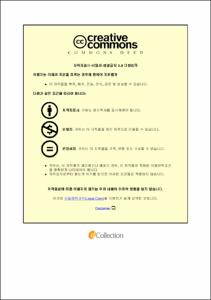시진핑 시기 중국의 대외정책에 관한 연구
- Alternative Title
- A Study on China's Foreign Policy in the Period of Xi Jinping - Focusing on Text Mining Analysis on the Articles of
- Abstract
- China has been steadily growing since its Economic reform and Open-up Policy in 1978. The era of Xi Jinping(习近平) began with the 18th Congress of the Communist Party of China and the 12th National People's Congress. The Xi Jinping government has maintained its stance of 'Great Revival of China,' ' Building a Full Well-Off Society,' and 'Peace Development.' Xi Jinping declared the 'China Dream' of the Xi Jinping government, which values international responsibility, rights and roles in accordance with its national power. Xi Jinping's Chinese diplomacy, unlike the existing leadership, is pursuing a leading and bold foreign policy, and the policy stance has changed from TaoGuang YangHui((韜光養晦) hide one's capabilities and bide one's time) to Peaceful Rise(和平发展).
Chinese diplomacy during Xi Jinping's period has emphasized 'New Type of International Relations' and 'Community of Shared Destiny.' Through this diplomatic stance, China claims to share mutual respect, equality, development and safety with other countries, and values the creation of an international environment for its sovereignty, safety and peaceful development through the specific global governance. Such a diplomatic move by China is analyzed as a strategy to address concerns over China's pursuit of hegemony, which is mentioned in the international community. China's strategy calls for a change in the world order, requiring an objective evaluation of the Xi Jinping administration's foreign policy in international community relations.
Thus, the researcher selected the as the best way to understand the foreign policy of the Xi Jinping government. The was the subject of analysis in this paper because it expresses the position of the Chinese Communist Party and the government and reports based on the party's policies. Through the 'People's Network', an Internet site of the , a total of 872 articles were collected, focusing on the Xi Jinping government's foreign policy keywords ( 'Xi Jinping', 'Foreign policy', 'Community of Shared Destiny for mankind', 'Diplomacy with neighboring nations', 'Great Power Diplomacy', 'New Type of International Relations', 'China Dream', 'Win-win Cooperation', 'Korean Peninsula', 'THAAD', 'North Korea' )
With the advent of the big data era, social science research, such as education, media, tourism, and society, is actively introducing big data research methods. Since the existing research methods of foreign policy are focused on qualitative and qualitative methods, it is believed that the data quantitative research method will provide objective analysis as well as new implications for the Chinese foreign policy research method. Under this background, Text Mining, Topic Modeling (LDA-based) analysis techniques focusing on text during mining analysis were used. After data preprocessing, word-filtering, and node-filtering of article and Topic Modeling (LDA-based) analysis techniques were performed sequentially. A total of 12 topics were selected and named according to the topic. This study analyzed five topics with high ranking among 12 topics through indicators such as topic modeling analysis, topic document classification, and topic-related networks, and the results are as follows.
It was organized into Topic 5 (China's strategy on the Korean Peninsula – communication and negotiation), Topic 10 (China-U.S. relations during the Xi Jinping period), Topic 2 (North Korea-China friendly relations during the Kim Jung-un period), Topic 8 (Constructing an Asian Community of Shares Destiny), and Topic 7 (China's Distinctive Great Power Diplomacy). The above results are intertwined with keywords related to the Korean Peninsula and the two Koreas and consist of major topics related to China's foreign policy during the Xi Jinping period related to the projects 'China Dream' and 'The Great Revival of the Chinese People.' With the results and analysis obtained from the research of this paper, this paper aims to provide implications for Korea's foreign policy.
- Issued Date
- 2021
- Awarded Date
- 2021. 8
- Type
- Dissertation
- Publisher
- 부경대학교
- Alternative Author(s)
- KIM, Da-in
- Affiliation
- 부경대학교 대학원
- Department
- 대학원 중국학과
- Advisor
- 리단
- Table Of Contents
- 제1장 서론 1
제1절 연구의 필요성과 연구 목적 1
제2절 선행연구 검토 6
1. 시진핑 시기 중국의 외교정책에 관한 연구 6
2. 텍스트마이닝 활용 연구 15
제3절 연구 방법과 논문 구성 18
1. 연구 대상 및 범위 18
2. 연구 방법 19
3. 본 논문의 구성과 모형 21
제2장 이론적 논의 23
제1절 매스미디어와 외교정책 23
1. 매스미디어 23
2. 와 중국의 대외정책 25
제2절 데이터 분석 프로그램 27
1. 빅데이터 27
2. 데이터마이닝 28
3. 텍스트마이닝 30
4. TF-IDF 31
5. 토픽모델링(LDA기반) 33
제3장 기사에 대한 토픽모델링 분석 결과 35
제1절 시진핑 시기 외교정책의 핵심 빈도 분석 결과 35
제2절 시진핑 시기 외교정책 토픽모델링 38
1. 토픽모델링 결과 38
2. 분석과 평가 45
제3절 주요 토픽 분석 결과 49
1. 중국의 대 한반도 전략-대화와 협상 ( Topic 5 ) 49
2. 시진핑 시기 중․미 관계 ( Topic 10 ) 51
3. 김정은 시기 북․중 우호관계 ( Topic 2 ) 53
4. 아시아운명공동체 구축 ( Topic 8 ) 55
5. 중국 특색의 대국외교 ( Topic 7 ) 58
제4장 결론: 요약과 시사점 61
제1절 요약 61
제2절 한국의 대외정책에 주는 시사점 64
1. 한반도 정세에 대한 안정적․능동적 관리 66
2. 한․중 관계의 내실화 추구 67
3. 한․미 동맹관계의 안정화 관리 69
참고문헌 71
- Degree
- Master
- Files in This Item:
-
-
Download
 시진핑 시기 중국의 대외정책에 관한 연구.pdf
기타 데이터 / 2.24 MB / Adobe PDF
시진핑 시기 중국의 대외정책에 관한 연구.pdf
기타 데이터 / 2.24 MB / Adobe PDF
-
Items in Repository are protected by copyright, with all rights reserved, unless otherwise indicated.